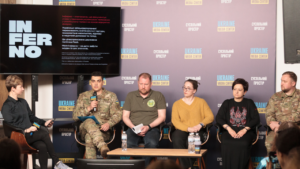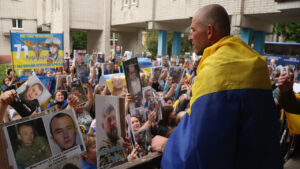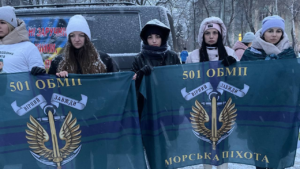94% of Ukrainian Prisoners of War Convicted in Russia Are Accused of Terrorism
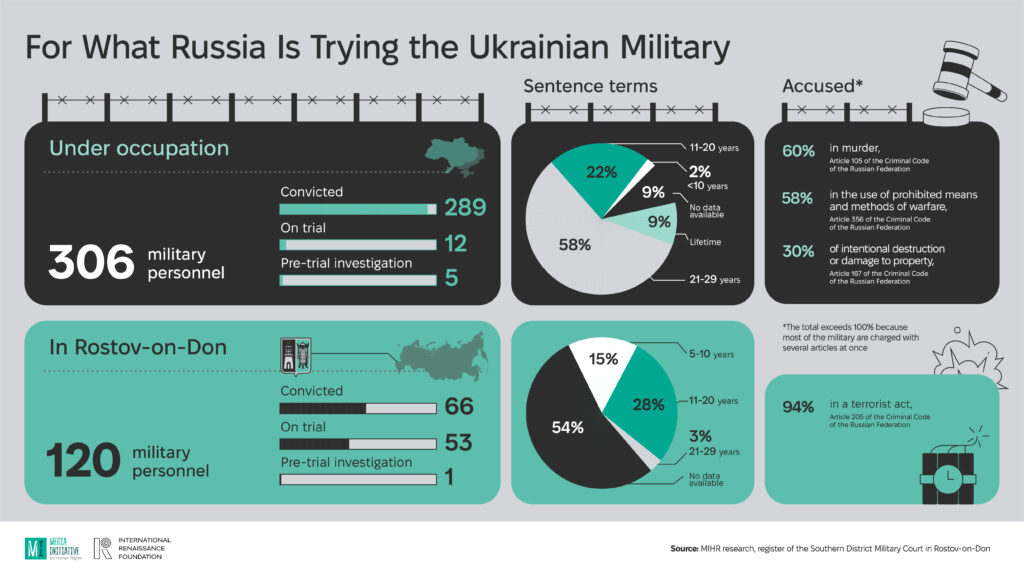
Monitoring of unlawful court cases against Ukrainian prisoners of war, conducted by the Media Initiative for Human Rights (MIHR), shows that courts in the occupied territories mostly convict POWs for “murders,” while courts in Russia hand down verdicts based on “terrorism” charges.
Since the beginning of the full-scale invasion, at least 66 Ukrainian POWs have been convicted in person by the Southern District Military Court in Rostov-on-Don. During the same period, courts in the occupied territories of Ukraine have issued verdicts against at least 289 individuals. These figures are current as of April 2025.
By analyzing the charges under which Ukrainians are tried in Rostov, MIHR found that 94% of the prisoners are convicted of “terrorism” under Article 205 of the Russian Criminal Code. Fabricated accusations often accompany these terrorism charges of seizure of power:
- organization of, or participation in, an illegal armed group;
- preparation for and attempted commission of a crime;
- complicity in a crime;
- illegal trafficking of weapons.
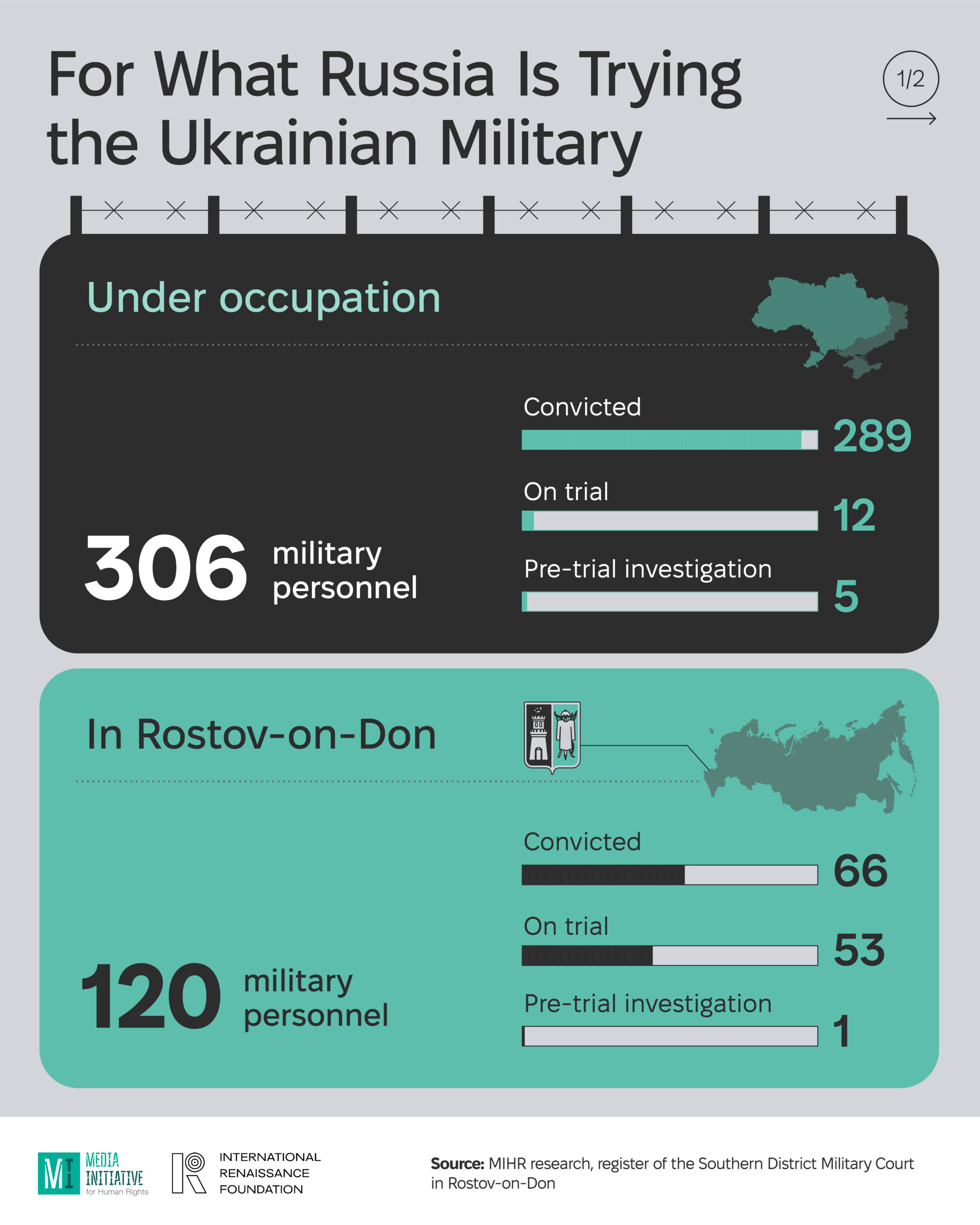
Russia is convicting Ukrainian POWs simply for participating in the war, which the Geneva Conventions categorically prohibit. Sentences for “terrorism” are primarily handed down to members of the Azov Brigade and the Aidar Battalion. Russia has unlawfully designated these official Ukrainian military units as terrorist organizations and is now issuing illegal verdicts against their members.
At the same time, in the occupied territories of Ukraine, POWs are illegally convicted of:
- murders;
- use of prohibited means and methods of warfare, including mistreatment of prisoners of war or civilians;
- intentional destruction or damage of property.
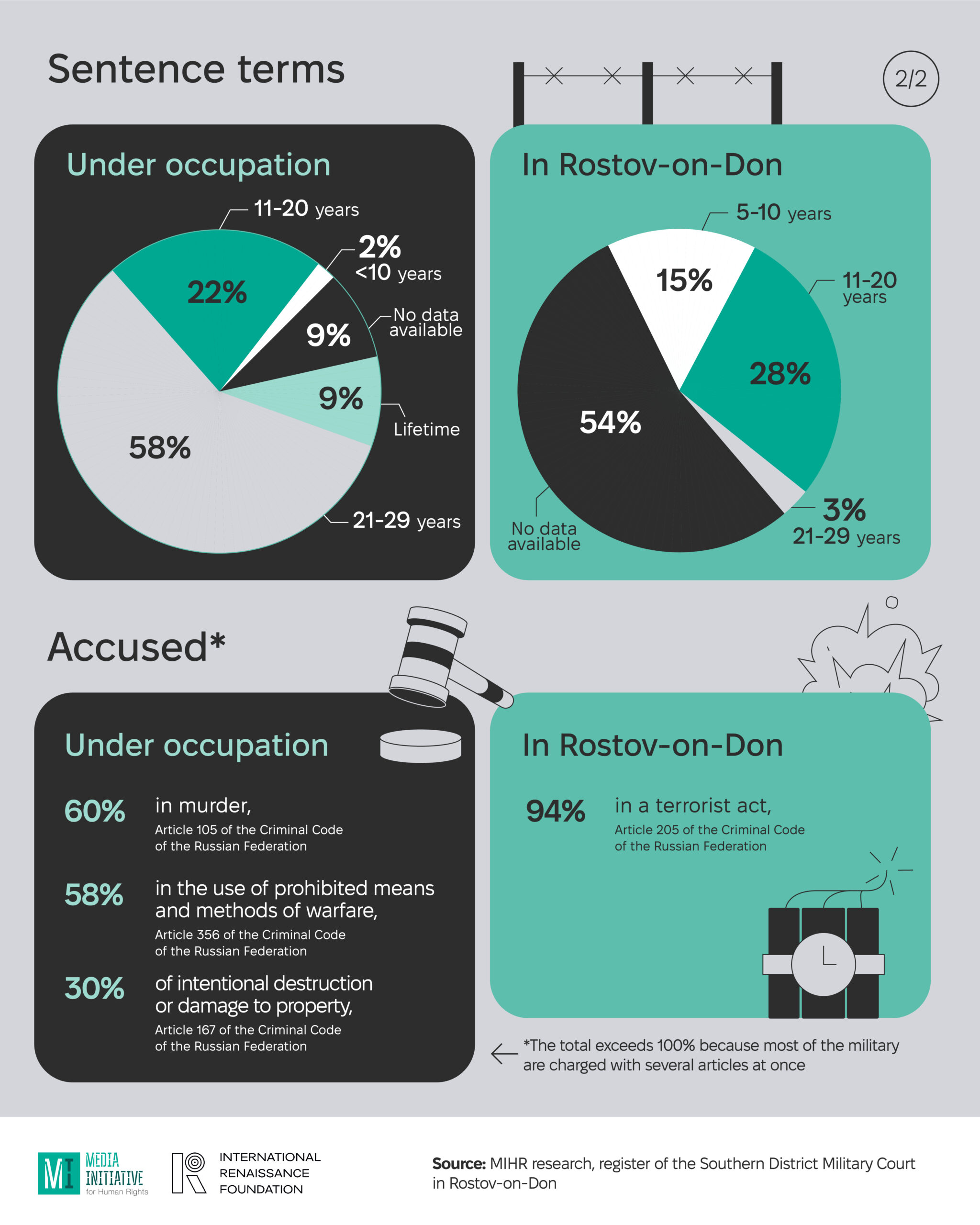
According to testimonies from former prisoners collected by MIHR, Russians and their collaborators force captives to confess to crimes they did not commit through torture. In this way, Russia attempts to whitewash its image before the international community by blaming Ukrainian soldiers for the killing of civilians and the destruction of civilian infrastructure.
It is important to note that MIHR’s monitoring shows that even unlawfully convicted prisoners of war may still be eligible for exchanges. So far, at least 16 military personnel convicted in Rostov and 50 soldiers sentenced in the occupied territories have been returned to Ukraine. These figures are not included in the statistical data presented in the infographics.
Previously, the Media Initiative for Human Rights, together with partners, published a study on Russia’s policy of judicial persecution of Ukrainian civilians and prisoners of war, identifying evidence of war crimes and crimes against humanity. The complete study is available here.
This publication was compiled with the support of the International Renaissance Foundation. It’s content is the exclusive responsibility of the authors and does not necessarily reflect the views of the International Renaissance Foundation.



